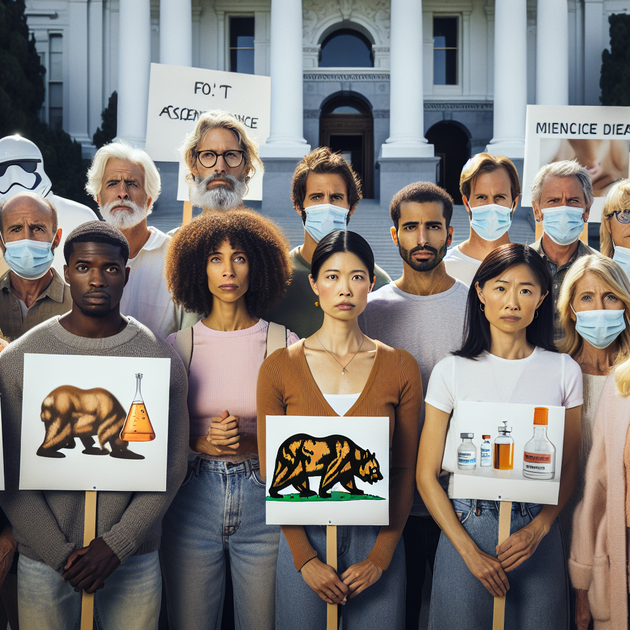Have you ever wondered what happens when a state like California starts saying it can’t trust Washington on something as important as COVID vaccines? It sounds dramatic—and honestly, it is. We’re looking at a potential showdown between state and federal authorities that could affect millions of people.
What Led to California’s Distrust Over COVID Vaccines?
California has always played its own tune when it comes to big issues—think climate change or tech regulation. But now, the state says it can no longer trust Washington on COVID vaccines. That statement alone is enough to make anyone do a double take.
So what’s going on? The friction seems to come from ongoing disagreements about how the federal government has handled vaccine approvals, booster recommendations, and even transparency around data. When federal guidelines shift or become politicized, states like California start wondering if they need to take matters into their own hands.
How Could This Impact Californians?
This isn’t just a political squabble—it has real consequences for everyday folks. If California doesn’t follow federal guidance blindly anymore, several things could happen:
- Separate vaccine guidelines: The state might issue its own recommendations about who should get vaccinated and when.
- Independent scientific reviews: Experts in Sacramento could double-check or even challenge federal FDA or CDC decisions.
- Conflicting information: People might get mixed messages about vaccine safety or effectiveness.
- Delays in rollout: If review processes slow down distribution, Californians might wait longer for new shots or boosters.
For parents deciding whether to vaccinate their kids or seniors wondering about boosters, this tug-of-war could get confusing fast.
State vs Federal Authority: Who Gets the Final Say?
The United States has always balanced power between states and the feds. When it comes to public health—especially during a pandemic—that balance gets tricky.
California’s move isn’t totally out of left field. In fact, back in late 2020 when the first COVID vaccines rolled out nationally, California created its own scientific safety review workgroup to double-check federal findings before giving the green light statewide. That was partly about building public trust—and partly about not putting all their eggs in one (potentially politicized) basket.
But if this trend continues or escalates:
- The patchwork approach could make cross-state coordination harder
- People traveling between states might face different rules
- The overall national response could lose some unity
Anecdote: When Trust Gets Personal
Let me share a quick story. My friend Maria works at a clinic in Los Angeles. She told me last year that some patients would only accept shots approved by both the CDC and California’s review group—even though both said basically the same thing! For many Californians, knowing that their own experts have double-checked everything brings peace of mind.
But Maria also noticed that as more agencies got involved—local health departments saying one thing and the feds another—her patients started tuning out altogether. “It just gets too hard to keep track,” she said.
What’s Next for Vaccine Policy in California?
So where does all of this leave us? If California keeps moving away from Washington’s lead on COVID vaccines:
- The state might invest even more in local science panels
- You could see more independent guidelines around boosters and eligibility
- This approach could set a precedent for other states—especially those big enough to go their own way
Of course, there are risks too—like slower responses or mixed signals that hurt overall vaccination rates.
At the end of the day, everyone wants safe and effective vaccines available quickly—but how we get there may depend more on politics than pure science.
What do you think? Should states like California chart their own course on vaccine policies—or should we stick together as one country when it comes to public health?

Leave a Reply